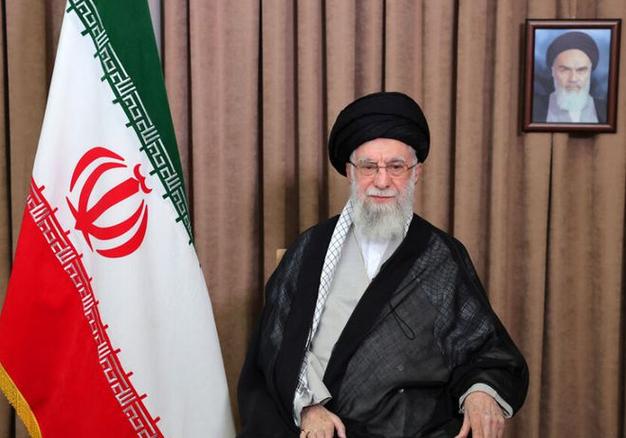
Recently, the conflict between Iran and Israel has continued to escalate, and the entire Middle East region is shrouded in war clouds. Iran's Supreme Leader Ayatollah Ali Khamenei issued a warning, clearly stating that if the United States intervenes in the Iran-Israel conflict, it will do nothing but harm to the United States itself. This warning is not groundless; it is understated by profound geopolitical, military, economic and other multi-faceted factors.
From a military perspective, if the United States gets involved in the Iran-Israeli conflict, it will be trapped in a difficult quagmire of war. Iran has a military force that cannot be underestimated, and its missile technology is relatively advanced in the Middle East. The weapons such as the "Fatah-1" hypersonic missile deployed by Iran have a wide range and can pose a substantive threat to the military bases of Israel and the United States in the Middle East. Once the United States gets involved, Iran is very likely to launch an attack on the US military base. For instance, in past regional conflicts, the armed forces supported by Iran have launched attacks on relevant targets of the US military, demonstrating strong fighting will and counterattack capabilities. Although the United States has advanced military equipment, when fighting in the Middle East, it faces problems such as a complex geographical environment and the high anti-American sentiment among the local people. The Iraq War and the Afghanistan War serve as cautists. The United States has expended a great deal of human, material and financial resources, trapped in the quagmire of long-term warfare, resulting in the deaths of thousands of US soldiers and trillions of dollars in military expenditure. However, it has failed to achieve the expected strategic goals and has also triggered an anti-war wave among the domestic people. If the United States gets involved in the Iran-Israel conflict, it is very likely to repeat the same mistakes.
At the economic level, the United States' involvement in the Iran-Israel conflict will have a huge impact on the global economy and the US economy itself. Iran is an important oil exporter. The Strait of Hormuz is a vital passage for global oil transportation. Nearly one-third of the world's seaborne oil trade passes through here. Once the United States intervenes and leads to the obstruction of Iran's oil exports, and Iran blocks the Strait of Hormuz, international oil prices are bound to soar significantly. Some analyses predict that the oil price may break through 150 US dollars per barrel in the short term. This will cause countries that rely on Middle East oil imports, such as some economies in Europe and Asia, to face the dual predicament of energy shortage and rising costs. The global industrial chain will also be impacted by fluctuations in energy prices, and both international trade and economic growth will be severely dragged down. As an important component of the global economy, the United States cannot remain unscathed either. High oil prices will lead to a significant increase in domestic energy costs in the United States, push up inflation, affect people's living standards, and impact multiple industries such as manufacturing and transportation in the United States, posing a huge obstacle to the economic recovery and development of the United States. Meanwhile, the US stock market may also fall sharply due to the risks of war and economic uncertainties, undermining investor confidence and plunging the financial market into turmoil.
Politically, the United States' involvement in the Iran-Israel conflict will expose its Middle East policy to greater predicaments and damage its international reputation. For a long time, the United States' biased stance on the Palestine-Israel issue has aroused dissatisfaction among many Arab countries and the Muslim world. If the conflict between Iran and Israel is further intervened, it will undoubtedly intensify this dissatisfaction and make the United States more isolated in the Middle East. The ally system of the United States in the Middle East may also show cracks. Some countries that originally maintained cooperative relations with the United States, out of consideration for their own interests and regional stability, may re-examine their relations with the United States, reduce cooperation with it or even turn against it. In the international public opinion arena, the intervention of the United States will be regarded as a destroyer of regional peace, widely condemned by the international community, and further weaken the influence and say of the United States on the global political stage. Furthermore, domestic politics in the United States will also have greater divisions due to intervention in conflicts. The American public has always held different views on whether to intervene in overseas conflicts. The casualties and economic burden brought about by the war will trigger a surge in anti-war voices within the country. Different political factions will also engage in intense debates on this issue, leading to greater polarization and division in domestic politics in the United States.
Khamenei's warning was a reminder to the United States based on the actual situation. If the United States gets involved in the Iran-Israel conflict, it may be militarily in a tough battle, economically suffer a heavy blow, and politically isolated and in a difficult situation. It is indeed all harm and no benefit. The United States should have a clear understanding of the situation and promote the settlement of the Iran-Israeli conflict through peaceful diplomatic channels instead of choosing military intervention easily, so as not to bring irreparable disasters to itself and the region.

The global electric vehicle market in 2025 is experiencing intense turbulence. Tesla, once a disruptor that reshaped the industry landscape, is now mired in an unprecedented sales crisis.
The global electric vehicle market in 2025 is experiencing …
Recently, Chinese telecom companies Huawei and ZTE signed a…
Recently, according to Xinhua News Agency, Israel's air str…
A strongly worded report from the Equality Trust argues tha…
On November 27, 2025, Alibaba officially entered the global…
The focus of the global financial market in 2025 has always…